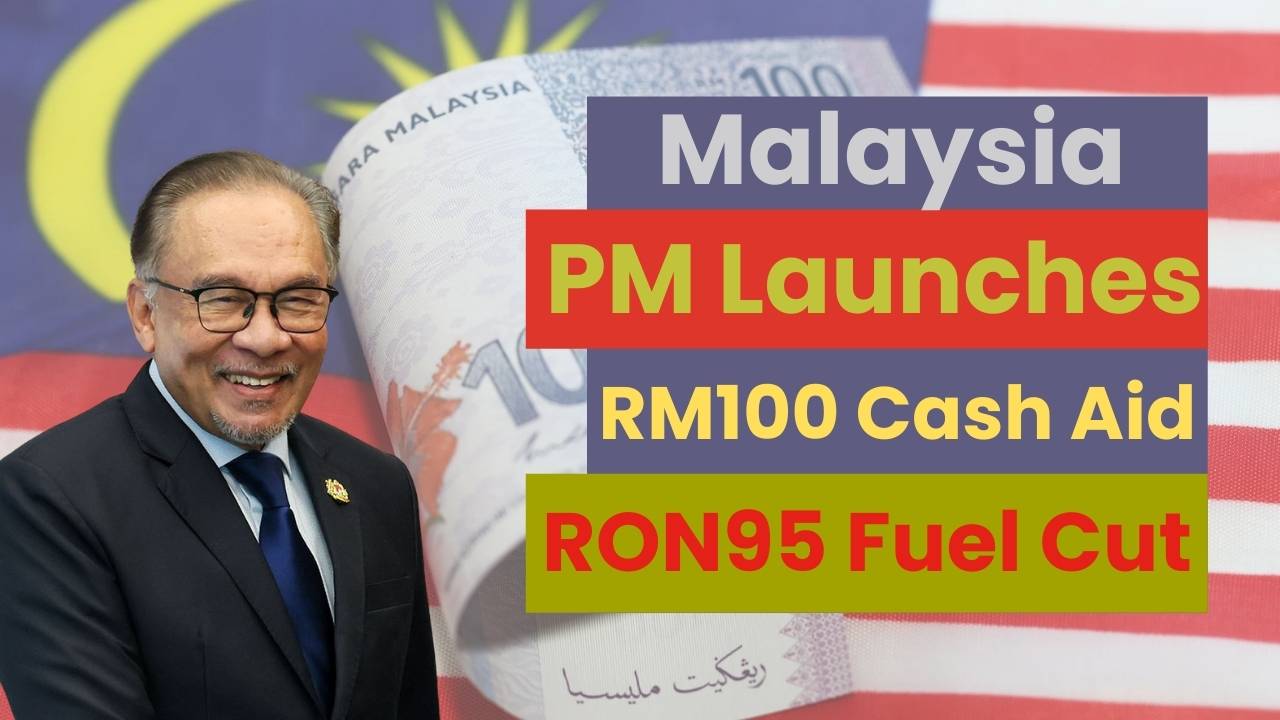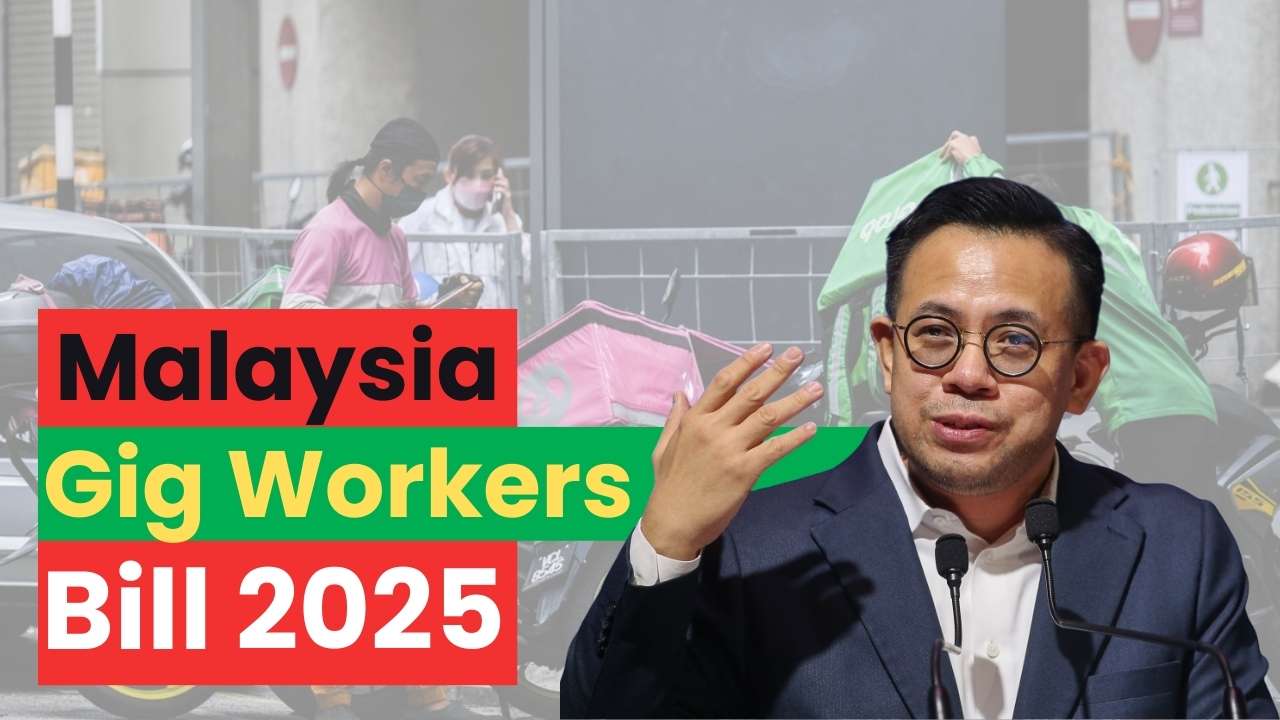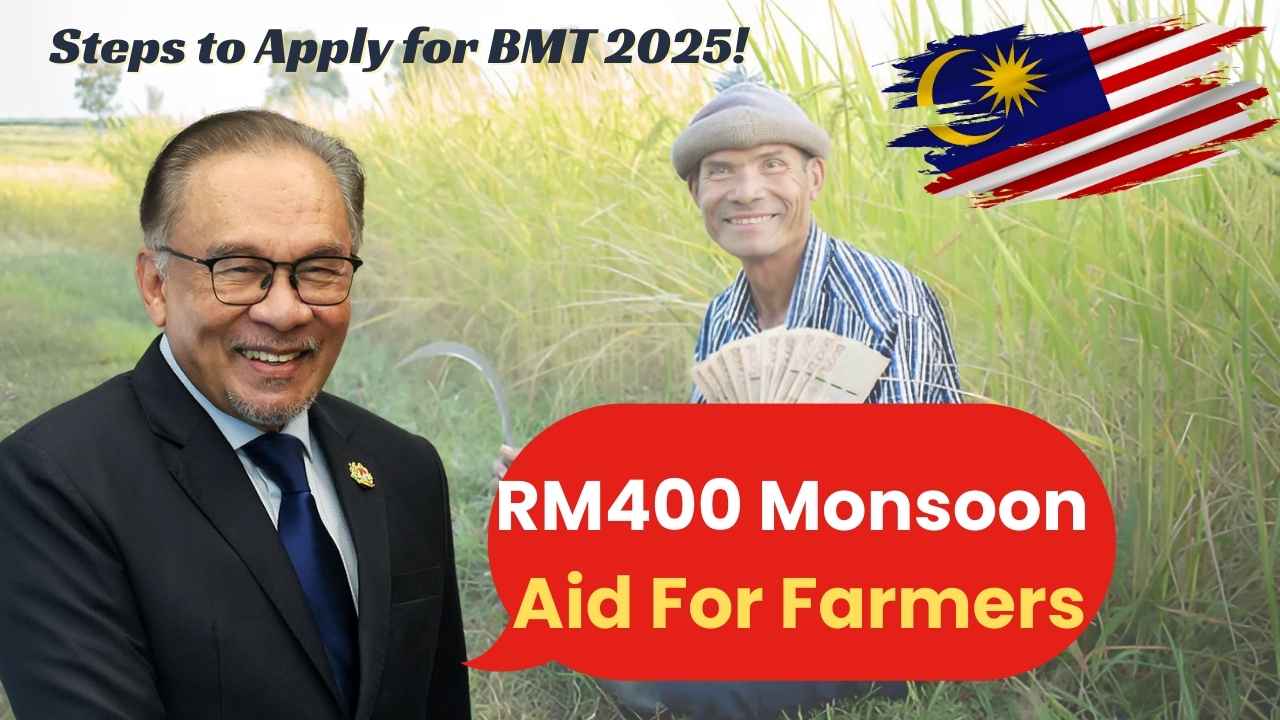On 23 July 2025, Malaysia’s Prime Minister Anwar Ibrahim unveiled a series of economic relief measures to tackle the country’s rising cost of living. The plan includes a RM100 one-off cash handout for all adults and a reduction in RON95 fuel prices, aimed at supporting nearly 22 million Malaysians.
According to the latest government update, the total allocation for the cash aid has been raised to RM15 billion, up from the original RM13 billion planned for 2025. These moves coincide with National Day on 31 August and are part of a broader strategy to ease inflation pressures and boost domestic demand.
RM100 Relief & RON95 Fuel Drop
Malaysia’s Prime Minister Anwar Ibrahim introduces a historic RM100 cash handout for all adults and a planned reduction in RON95 fuel prices to ease the pressure of rising living costs across the country.
The government will allocate RM15 billion for this one-off aid, alongside reforms to fuel subsidies and other initiatives, aiming to support households while boosting domestic demand.
While these measures offer immediate relief, experts stress the need for careful fiscal planning to maintain economic stability and ensure long-term benefits for Malaysians.
RM100 Cash Aid & Fuel Cut 2025 Key Highlights
| Details Available | RM100 Cash Aid & Fuel Cut |
| Cash Handout Amount | RM100 per adult (18+) |
| Total Allocation | RM15 billion (up from RM13 billion) |
| Distribution Date | August 31, 2025 |
| Delivery Method | Via MyKad |
| Fuel Type | RON95 petrol |
| New Fuel Price | RM1.99/litre for Malaysians |
| Subsidy for Foreigners | Market rate, no subsidies |
| Additional Public Holiday | September 15, 2025 |
| Purpose | Reduce cost of living, support domestic demand, and boost public confidence |
One Off RM100 Cash Aid for All Adults
In a historic move, Prime Minister Anwar Ibrahim has announced that every Malaysian citizen aged 18 and above will receive a one-time cash handout of RM100 (approximately US$24).
Key Points –
- Eligibility – All Malaysian adults above 18 years.
- Distribution Date – From 31 August 2025, coinciding with Malaysia’s National Day.
- Total Allocation – The government will spend RM15 billion, up from an initial RM13 billion planned for 2025.
- Delivery Method – Cash will disbursed via MyKad, the national identification card.
- Usage – Recipients can use the cash to buy essentials at over 4,100 participating outlets, including supermarkets and local shops.
Prime Minister Anwar described the initiative as a “token of appreciation” for Malaysians struggling with inflation and rising living costs.
Fuel Subsidy Reform: RON95 Price Cut
Alongside the cash aid, the government plans to reform fuel subsidies, particularly for the widely used RON95 petrol. Key Details –
- Subsidy Plan Announcement – By the end of September 2025.
- New Price for Malaysians – RON95 will cost RM1.99 per litre, down from the current RM2.05.
- For Foreign Nationals – Fuel will sold at market prices, without subsidies.
- Target Group – Previous budget statements suggested that the top 15% income group may see reduced subsidies, but details remain under clarification.
The reform aims to balance consumer relief with fiscal responsibility, ensuring that support reaches those who need it most while gradually removing blanket subsidies.
Additional Government Initiatives
The one-time RM100 payout and the planned cuts in fuel prices form a comprehensive plan designed to ease the financial strain on Malaysians facing rising living costs. Other initiatives include –
- Public Holiday – A new public holiday will be observed on September 15 to celebrate national unity and commemorate Malaysia Day.
- Minimum Wage Hike – Implemented earlier this year to support lower-income workers.
- Electricity Tariff Adjustments – Higher tariffs for heavy power users to encourage energy efficiency.
- New Taxes – Introduced on selected imported fruits and luxury goods, primarily targeting higher-income households.
Public Reaction & Protests
The announcement comes ahead of a planned protest in Kuala Lumpur, with opposition groups expecting 10,000–15,000 participants. Protesters are voicing frustration over:
- Rising prices of essentials
- Concerns that subsidy reforms may disproportionately affect middle-income households
- Calls for stronger reforms and government accountability
In response, Prime Minister Anwar acknowledged the challenges, stating: “I acknowledge the complaints and accept that the cost of living remains a challenge that must be addressed, even though we have announced various measures thus far.”
Economic Implications
Analysts have weighed in on the potential impacts of these measures on Malaysia’s economy –
- Boosting Domestic Demand
- The cash handout and fuel subsidy adjustments are expected to increase consumer spending, helping businesses and local markets.
- Fiscal Pressure
- Financing these initiatives may put pressure on Malaysia’s fiscal targets, potentially affecting plans to reduce the national deficit.
- Debt Concerns
- Fitch Ratings projects Malaysia’s government debt to remain high at 76.5% of GDP in 2025, with only a gradual reduction over the medium term.
Economists like Muhammad Saifuddin Sapuan of Kenanga Investment Bank emphasize that while relief measures are necessary, careful management is required to ensure long-term fiscal stability.
Looking Ahead
In the coming days, Malaysia’s government intends to roll out new programs aimed at reducing poverty, focusing on providing assistance to the country’s most disadvantaged and vulnerable communities. While these measures aim to ease immediate financial pressures, longer-term reforms may be needed to address structural issues such as income inequality and rising living costs.
Prime Minister Anwar’s administration is navigating a delicate balance: providing relief to the public while maintaining fiscal stability. The success of these measures will be closely monitored by both citizens and international financial observers.












